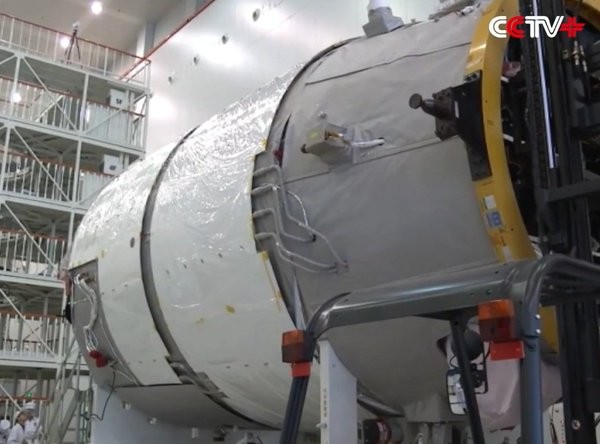China is on the last stage of testing its Tiangong-2 space laboratory before it is launched into space to serve as the core for a planned space station.
Tiangong-2, which is the country's second space laboratory, arrived at the Jiuquan Satellite Launch Center in the Inner Mongolia Autonomous Region on Saturday, China Daily reported. Upon its arrival, the laboratory will be assembled and tested before its launch in September aboard a Long March FT2 rocket.
Once in space, Tiangong-2 will carry out several missions, including testing its life support systems, performing docking maneuvers with both cargo and manned experiments, and conducting other experiments to test various technologies for the space station the country plans to build in 2022.
According to the China Manned Space Agency, Tiangong-2 will be more comfortable to live in compared to its predecessor the Tiangong-1, with space for two astronauts. The laboratory, as a whole, is comprised of two cabins: the "experiment cabin" which also serves as the crew's quarters, and the "resource cabin" which houses the solar panels, engines and other equipment.
As part of its mission, the Tiangong-2 will dock with a Shenzhou XI spacecraft in October. The spacecraft will bring in the first two astronauts to live in the lab. In April of next year, the Tiangong-2 will dock with a Tianzhou-1 cargo spacecraft carrying fuel and supplies.
Meanwhile, the lab's predecessor is reportedly now starting to fall from its orbit and potentially undergo an uncontrolled re-entry. Experts said that Chinese space officials have previously struggled to control the spacecraft after it entered its "operational management phase" at the end of its mission in 2013, The Independent reported.
Since then, officials have yet to give an update on the status of the decommissioned lab.
Tiangong-1 was launched in 2011, being used as a testing ground for both automatic and astronaut-control docking experiments. The lab stopped operating in March of this year.



























